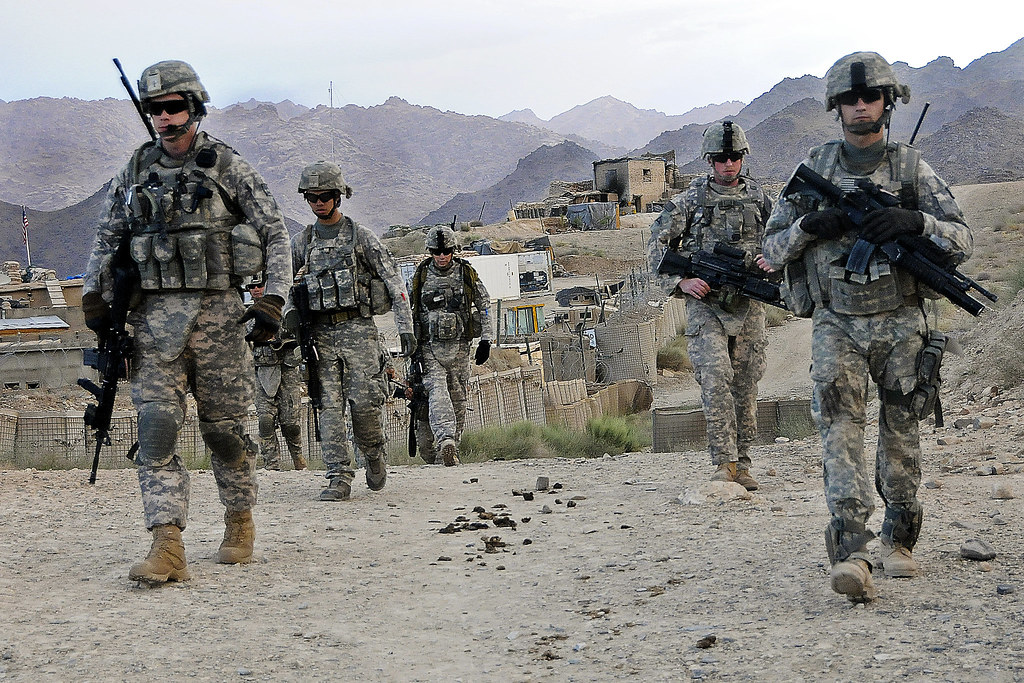IN THE MEDIA
Amnesia, Afghanistan and the ongoing threat
September 9, 2021 | Tzvi Fleischer

What we have forgotten about Sept. 11
Australian Jewish News – 9 September 2021
There’s a reason almost everyone remembers where they were and what they were doing when they heard about the Sept. 11, 2001 attacks on the World Trade Centre and Pentagon. These were not just shocking acts of terrorism costing almost 3,000 lives, but, at the time, seemed to represent the beginning of a whole new era, requiring a new way of thinking about the world.
In the post-Cold War 1990s, Liberal Democracy appeared unchallenged as the preferred model for nations globally until a threat suddenly emerged from a completely unexpected quarter – Islamist extremists almost no one had taken seriously as a major danger to Western societies. Moreover, these extremists had demonstrated they could use the infrastructure and technology of modern Western societies against them to create unprecedented carnage in a way that looked almost impossible to stop.
With no comparable attack in the West in the 20 years since – despite numerous smaller yet still horrible terrorist atrocities – many commentators today seem unable to recall either that mood or the circumstances leading to it.
This historical amnesia has led many pundits to recently describe the war in Afghanistan as a futile and foolish attempt at nation-building as part of a costly, bloody and stupid “forever war” prompted by 9/11.
Yet, after the debacle of the US pull-out from Afghanistan, and the rapid Taliban reconquest, we may well soon be recalling those feelings all too clearly.
As distinguished American foreign policy analyst Robert Kagan noted in an August 26 Washington Post essay, it is simply untrue, as all too many are claiming, that the US and its allies invaded Afghanistan out of a hubristic belief they could “nation-build” it into a liberal democracy. They went into Afghanistan out of fear – in Kagan’s words, “fear of another attack by al-Qaeda, which was then firmly ensconced in the Taliban-controlled country; fear of possible attacks by other groups using chemical, biological or even nuclear weapons.”
He documents that the US Bush Administration was simply hoping for any stable government in Afghanistan capable of preventing the return of the Taliban and their al-Qaeda allies. “Nation-building” only slowly, and very temporarily, became a US mission as it became clear there was no easy short-term way to achieve this aim – and, despite this slogan, every US President since then has simply sought to achieve enough stability to withdraw.
Kagan also makes the important point that, if you told the average American in 2001 there would be no additional attacks like 9-11 for 20 years, at a cost of 4,000 American soldiers’ lives and US$1 trillion+, they would likely have considered that a successful outcome.
No one can seriously argue that Islamist extremist terrorism, often empowered by state sponsorship, does not remain a very serious international problem today.
The premature US withdrawal from Iraq in 2011 allowed the rise of Islamic State – which caused huge carnage even without significant state sponsorship. The Trump Administration’s decision to effectively withdraw unilaterally from Afghanistan, carried out in a chaotic and poorly managed way by the Biden Administration, may well lead to far worse consequences.
Not only is the image of steadfast, courageous and patient Jihadists with God on their side defeating a superpower already a huge recruitment tool and inspiration for Islamist terrorists everywhere, but the Taliban, still intimately working with al-Qaeda, captured unprecedented amounts of US military equipment. Unlike IS, they are backed by both the state of Afghanistan and major elements of Pakistan’s security forces, and get some support from Iran. And the West has lost essential intelligence assets in Afghanistan crucial to monitoring the Taliban, al-Qaeda, and the rival Islamic State-Khorasan, also based in Afghanistan.
The past 20 years have affected Jews much more than most. Islamist terrorists of all sorts overwhelmingly make antisemitism a core of their belief system and seek Jewish targets – as evidenced, for instance, by reporter Daniel Pearl’s murder in 2002, the 2003 car bombings of two synagogues in Istanbul, the 2008 Mumbai Chabad house attack, the 2012 Jewish school shooting in Toulouse, the 2014 Brussels Jewish Museum shooting, the 2015 kosher supermarket attack in Paris, and the 2015 Copenhagen synagogue shooting.
Moreover, many quickly blamed Israel for supposedly causing the 9/11 attacks by angering Muslims through its treatment of Palestinians. Then “neo-conservatives” – with almost all those given this moniker being Jews – were widely demonised as murderous warmongers exploiting the terror attacks. And even today, conspiracy theories about Jews or Zionists being behind the 9/11 attacks remain widespread – including at recent anti-lockdown demonstrations in Australia.
There is no reason to believe the global conflict launched on Sept. 11, 2001 is now over just because of the Afghanistan withdrawal. Islamist extremists and their state sponsors also get a vote – and they view this, not as an ending, but as one victory on their road to total triumph. And both Jews and others may soon discover that the worst-case scenarios we all feared in the wake of 9/11 remain very plausible today.





